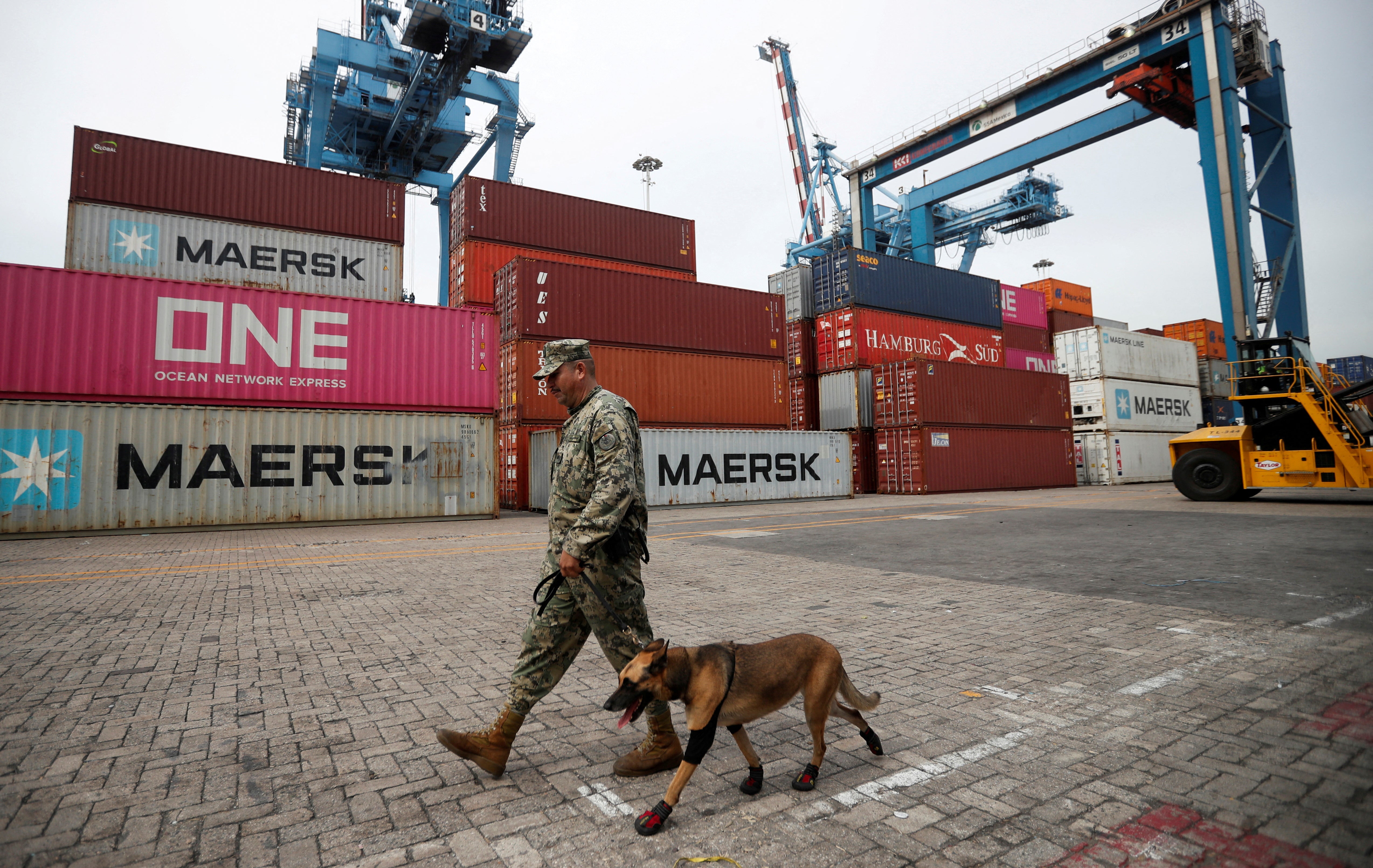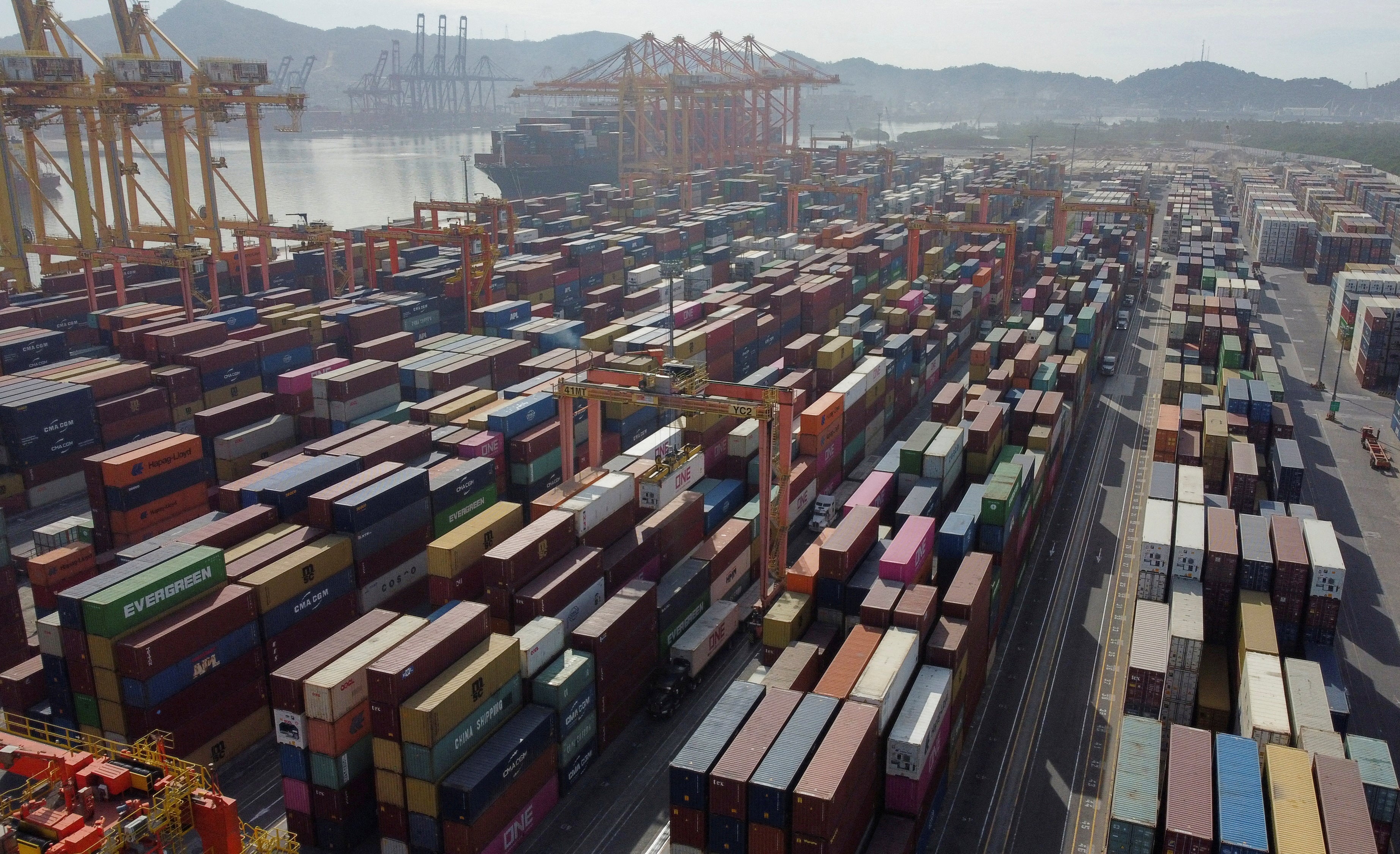A US-backed UN program designed to halt the flow of fentanyl precursor chemicals into Mexico has been stalled by President Trump’s foreign aid freeze, sources reveal.
The initiative, which provided training and equipment to the Mexican Navy for enhanced cargo screening at the Port of Manzanillo, has been disrupted along with other counternarcotics efforts, Reuters has found in an exclusive investigation.
Manzanillo, Mexico’s busiest container port, was the initial focus of the program. Expansion plans to incorporate two additional ports, Lázaro Cárdenas and Veracruz, have been put on hold due to the funding cut.
The program, part of the Container Control Programme, a joint effort by the UN Office on Drugs and Crime and the World Customs Organization, aims to bolster local authorities’ capacity to detect and prevent cross-border smuggling.
The US had committed approximately $800,000 to launch the Manzanillo project in 2023.

The Port of Manzanillo has long been a magnet for narcos looking to sneak Chinese chemical precursors into Mexico to supply illicit labs that manufacture synthetic opioids and methamphetamine.
Traffickers have likewise stashed finished street drugs aboard outbound cargo ships, particularly meth headed for Europe. The US funding freeze has also shelved, for now, future training and equipment donations at Manzanillo, four of the sources said. The port was slated to receive additional cargo scanners and drug-testing equipment, two sources said.
White House Deputy Press Secretary Anna Kelly did not answer emailed questions from Reuters about the administration’s decision to halt funding for the Mexican port program. She did say that Trump is acting to secure the border and cut federal spending.
The stalling of the UN cargo program in Mexico is part of a broader pause on US-funded anti-narcotics efforts in Mexico as a result of the global freeze of foreign aid that Trump ordered on January 20. Other activities halted by the stop-work order include US training of Mexican authorities to find and dismantle clandestine fentanyl labs and US donations of drug-sniffing canines to Mexico, Reuters previously reported.

The Trump administration has since issued waivers to resume funding for some security programs worldwide. In Mexico, that includes $7.8 million in projects funded by the State Department’s Bureau of International Narcotics and Law Enforcement Affairs (INL) that aim “to counter production and trafficking of fentanyl and to dismantle terrorist criminal organizations,” according to a State Department official.
But the rest of INL’s approximately $50 million budget for Mexico – much of which is dedicated to disrupting the fentanyl supply chain – remains frozen. The UN Container Control Programme in Mexico has not received a waiver from the freeze, three sources said. The State Department official said additional programs are under review for potential waivers, without specifying which ones.
Enrique Roig, a former senior State Department official, said the halting of funding to anti-narcotics programs in Mexico could undermine the Trump administration’s efforts to address America’s drug overdose crisis.
“Stopping all these programs at this moment, I just don’t see how this is going to have a positive impact on reducing the numbers of fentanyl deaths in the US,” Roig said.
More than 450,000 Americans have died of synthetic opioid overdoses over the past decade, with millions more addicted. A Reuters investigation last year revealed how this epidemic is fueled by a shadowy supply chain for precursor chemicals, mostly from China, which are smuggled into North America by air and sea and then synthesized into finished fentanyl in clandestine labs in Mexico.
The Trump administration has said that smashing the fentanyl supply chain and ending the U.S. overdose epidemic are among its top priorities. In recent days, it has designated Mexico’s Sinaloa and Jalisco New Generation cartels, considered the main producers of illicit fentanyl, as foreign terrorist organizations.
In recent years, Mexico’s Navy, considered the most incorruptible security agency, has assumed control of the nation’s seaports in an effort to crack down on the smuggling of drugs and their precursor chemicals. In 2023, the launch of the U.N. program at Manzanillo was heralded by U.S. and Mexican officials as another major step.
The State Department official said that training from the program has helped Mexican authorities nab several shipments of precursor chemicals, including nearly 90 tons of meth ingredients in July 2024, and another 25 tons of meth chemicals in December. A Mexican official familiar with the U.N. program says it has helped authorities better identify the tactics that smugglers use to conceal their goods.
“This is exactly the type of assistance that makes the U.S. safer and stronger,” said Peter Yeo, president of the Better World Campaign, an advocacy group which promotes a close relationship between the U.S. and the U.N.
Despite the US investment in training and equipment at the port, smuggling of drug-making ingredients remains a serious problem at Manzanillo, according to two chemical brokers who spoke to Reuters last year and described in detail how they moved tons of fentanyl ingredients through this port with little difficulty.
Manzanillo is not the only port where chemicals are flowing into Mexico.
The Port of Veracruz on the Gulf of Mexico, where the UN program was supposed to be rolled out this month, is considered a key place to step up screening.
While Mexico’s Pacific ports, including Manzanillo, offer the most direct sea route for cargo coming from Asia, traffickers increasingly are routing Chinese fentanyl precursors through Europe and across the Atlantic Ocean to Mexico, three sources said.
Veracruz is also an important location for outbound shipments of methamphetamine produced in Mexico and then smuggled to Europe, they added.
The expansion of the cargo program to Veracruz and to Lázaro Cárdenas on the Pacific was slated to cost between $1.5 million and $2 million, three sources said.
The UN has also been in talks with Mexican authorities to launch a similar UN program for cargo at airports, known as AIRCOP, at Mexico City’s Benito Juárez airport, four sources said.
Expanding to Mexico’s busiest airport is considered particularly critical in the fight against fentanyl, authorities say, because a significant volume of precursor chemicals are smuggled in small packages by air, rather than in large cargo ships. The US funding freeze could imperil these plans, too, a source familiar with the matter said.
The United Nations Office on Drugs and Crime, which runs the container program, did not respond to a request for comment, nor did Mexico’s presidency and its foreign ministry.
While the U.S. for decades has pursued a bilateral security relationship with Mexico, its ally, neighbor and largest trading partner, experts say Trump’s freeze on U.S. security assistance signals a broad shift in America’s approach towards battling Mexican drug traffickers.
Trump has called publicly for a US “military operation” against Mexico’s cartels. Last week, after the US designated a handful of cartels “foreign terrorist organizations,” Trump’s close adviser Elon Musk tweeted, “that means they’re eligible for drone strikes.”
In fact, the designation does not – from a legal perspective – facilitate military action in Mexico. But some analysts said it could serve as a political stepping stone towards some form of military intervention by helping to build a rationale for it.
Mexican President Claudia Sheinbaum also said last week that she will propose a constitutional reform aimed at further protecting Mexico’s national sovereignty.






